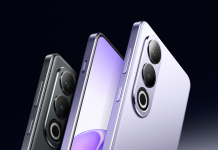In tech news last week, we saw some interesting shifts and innovative launches, including Apple’s “PINE APPLE” trademark, OnePlus’s shift to Snapdragon chipsets, Google’s Pixel 8 series, and Qualcomm’s Snapdragon G Series for handheld gaming devices.

China’s smartphone landscape experienced a 72% sales surge, with foldable smartphones primarily led by Huawei. India’s wearable tech market welcomed boAt’s Smart Ring, while Xiaomi secured approval for 100,000 vehicle production. Apple aims to position India as a pivotal hub for iPhone production, potentially reshaping global manufacturing dynamics.
More on these headlines below.
Apple applies for Pineapple trademark – its love for fruits continues
Apple has filed multiple “PINE APPLE” trademark applications, covering scientific instruments, advertising sales, and building repair. The term “PINE APPLE” corresponds to both “菠萝” and “凤梨” in Chinese. Apple has launched 215 trademark opposition applications, surpassing tech giants Google, Microsoft, Amazon, and Meta. The latest “PINE APPLE” trademark venture marks the latest in Apple’s fruit-based branding history.
OnePlus will reportedly use only Snapdragon chipsets from next year onwards
OnePlus and Realme are set to exclusively use Qualcomm Snapdragon chipsets in their upcoming devices, according to a Chinese tipster. The OnePlus 12 will feature the Snapdragon 8 Gen 3 chipset, while the OnePlus 12R, Nord 4, and Nord 5 will use Snapdragon 8 Gen 2 and 7 Gen 3 chipsets. The device is expected to launch in November.
Google Pixel 8 & 8 Pro renders suggest it could launch with eSIM only models in some regions
Google is set to launch the Google Pixel 8, successor to the Pixel 7, in October 2023. A new leak reveals renders of the Pixel 8 and Pixel 8 Pro, with the SIM tray missing. Rumored specifications include a 50MP rear camera, 64MP IMX787 ultra-wide-angle lens, Tensor G3 chip, 6.7-inch OLED panel, and storage options of 128GB and 256GB.
Qualcomm announces new Snapdragon G Series chips aimed at handheld gaming devices
Qualcomm has introduced the Snapdragon G-series, focusing on handheld gaming devices. The lineup includes three chips: Snapdragon G1 Gen 1, Snapdragon G2 Gen 1, and Snapdragon G3x Gen 2. These processors offer different form factors and performance, with the flagship offering being the Snapdragon G3x Gen 2, which offers 30% faster CPU performance and twice the GPU performance. The G1 Gen 1 is designed for fanless gaming handhelds and cloud streaming.
Foldable Smartphone Sales in China increased by 72% this year, with Huawei leading the market
Foldable smartphones are gaining momentum in China’s smartphone market, with Huawei securing the top position with the Huawei Mate X3. The Mate X3’s design and specifications led to solid sales in Q2 2023. Huawei holds half of the foldable market share, followed by Samsung and Honor. The horizontal flip or fold form factor attracts more buyers.
What is Satellite Connectivity on Smartphones and How Does it Work?
Satellite Communication on smartphones has the potential to have a significant impact on our lives. The promise of continuous, far-reaching connectivity can be a game-changer, especially in life-threatening situations. Clearly, this makes satellite communication on smartphones not just a luxury, but a possible lifesaver. Read this story to learn how this service works.
boAt Smart Ring With Smart Touch Control, Body Recovery Tracking Launched In India
The smart rings market is untapped, with popular brands like Oura offering potential alternatives to fitness bands and smartwatches. Samsung is working on a smart ring, while boAt has officially launched its smart ring in India. The device is water-resistant and features sensors like heart-rate, SpO2, sleep, menstrual cycle, body temperature, and recovery trackers. It offers health tracking, emergency SOS, and a battery life of up to 7 days on a full charge. The boAt Smart Ring will be available for purchase on Amazon, Flipkart, and the brand’s website starting August 28.
You might also consider checking out our detailed explainer on What are Smart rings.
Upcoming Honor phones in India will get 3 years of updates with a bloatware-free UI
Honor is set to return to India, partnering with PSAV Global to establish its retail network. The first Honor phone is expected to be the Honor 90, with three years of software support, a bloatware-free UI, and access to Google Apps. Honor is now independent and runs MagicOS 7.1 software on Android 13.
Huawei and Ericsson Settle Patent Dispute, Sign Long-Term Agreement
Huawei and Ericsson, telecommunications technology companies, have signed a long-term patent license agreement for 3G, 4G, and 5G technologies. The agreement covers the companies’ respective sales of network infrastructure and consumer devices, granting global access to each other’s patented, standardized technologies. Huawei, a major contributor to mainstream ICT standards, is both a holder and implementer of SEPs, aiming to create a balanced patent environment and provide consumers with robust products and services.
Xiaomi to develop Android operating system to compete with Huawei’s HarmonyOS and Google.
Xiaomi is developing its own operating system, miOS, which is compatible with the Android Open Source Project. This could be used on various devices, including smartphones, tablets, and wearables. Xiaomi is not the only Chinese phone company making its own operating system, with Huawei already launching HarmonyOS in China. However, Xiaomi faces a challenge with Google’s MIUI 15 system, which is essential for its success. The company is committed to developing the new OS and ensuring compatibility with a wide range of devices.
US Chip Export Controls Could Cost Nvidia Billions in China Revenue
The US-China trade war continues, causing tech industry problems. Nvidia faces a “permanent loss” of business opportunity in China if the US tightens export controls on chips. The company is already prohibited from exporting high-end artificial intelligence chips to China and may be prevented from selling less powerful chips. The US government is considering tightening chip export controls to prevent China from developing its advanced chip industry. Other US companies, including Intel, Qualcomm, and Apple, are also concerned about the potential loss of business in China.
Apple Plans to Make India the ‘iPhone Factory of the World’
The Covid-19 pandemic has significantly impacted the world, leading to changes in habits and production. Apple, a major player in the smartphone industry, is considering scaling up its domestic component manufacturing in India. Apple plans to increase the manufacturing of parts within the country, aiming to diversify its supply chains and reduce reliance on China. This move is expected to create jobs, boost the economy, and help India become a more self-reliant electronics manufacturing country.
Xiaomi has secured approval from the National Development and Reform Commission (NDRC) to produce 100,000 vehicles annually for electric vehicles. The company plans to transform its extensive store network into EV showrooms by the first half of 2024. However, the approval process is contingent on regulatory approvals, and Xiaomi’s commitment to innovation and adaptation highlights its ambition to diversify its business beyond the smartphone sector.
So these were the top news stories from past week. You can check out our latest news stories from this link.







